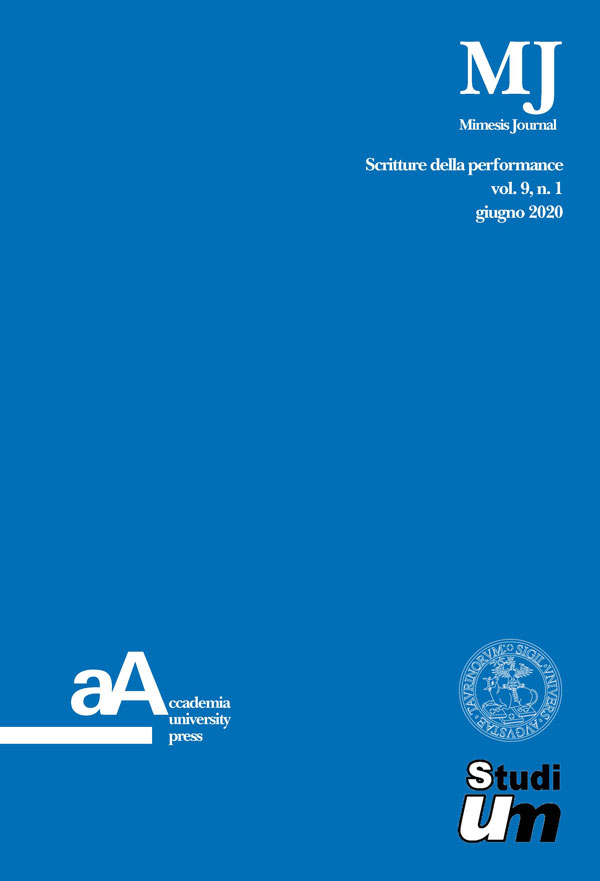Il paradigma della velocità
l dinamismo sulla scena europea tra fine Ottocento e inizio Novecento
DOI:
https://doi.org/10.4000/mimesis.1911Abstract
Between the end of the nineteenth century and the beginning of the twentieth century, European culture was deeply fascinated by dynamism as a synonym for scientific progress. The theater reacted to this awareness with variety shows based on the combination of short and flexible dramaturgical units. The essay proposes a mapping, which correlates, in the light of the paradigm of speed, theatrical phenomena in the strict sense and performances of a wider spectacularity, such as circus. Yvette Guilbert’s allusive interpretations, Loïe Fuller’s hypnotic choreographies, Leopoldo Fregoli’s illusionistic transformations, the Grand Guignol quick one-acts and the Hanlon-Lees’ convulsive pantomimes are the outcomes of new compositional methods based on accelerated movement, reproducing moreover the vortex of the rhythms imposed by modern society.


